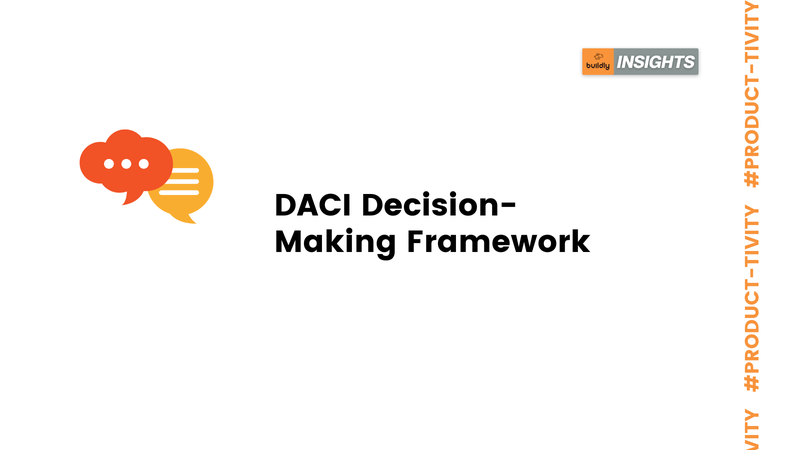DACI decision-making framework

- admin
- Feb. 6, 2023
Making decisions quickly and properly is crucial for success in today's fast-moving and dynamic business environment. However, because different stakeholders have different aims and interests, it can make decision-making complicated. The DACI decision-making framework offers a structured and methodical approach to decision-making that can help guarantee good results.
The DACI framework, which stands for Driver, Approver, Contributor, and Informed, is a useful tool for managing decisions. Each role engaged in the decision-making process is represented by the acronym:
Driver: The Driver is in charge of directing the decision-making process, establishing precise expectations and deadlines, and communicating with all parties.
Approver—The people who make final decisions and are in charge of giving approval and feedback are known as approvers.
Contributor—The Contributors are in charge of offering opinions on important subjects and working with the other process participants.
Informed—The Informed are stakeholders who need to be kept updated on all decision-making activities but who do not actively participate in the process.
DACI works to guarantee that all stakeholders have a voice in the process and that decisions are made quickly and efficiently by giving each role in the process a particular task. Additionally, employing DACI helps in concentrating the discussion on important problems, maintaining the flow of conversations, and advancing the decision-making process.
The DACI framework can be applied to both small projects and significant efforts, and it can be customized to match any kind of decision-making process. Additionally, it removes uncertainty around who should be making what decisions by specifically identifying individual stakeholders as accountable for each phase of the process.
In conclusion, DACI is an effective instrument for decision-making in both major organizations and small businesses. Organizations can achieve effective outcomes and guarantee that all stakeholders have a role in their future by using this framework to manage the decision-making process.

